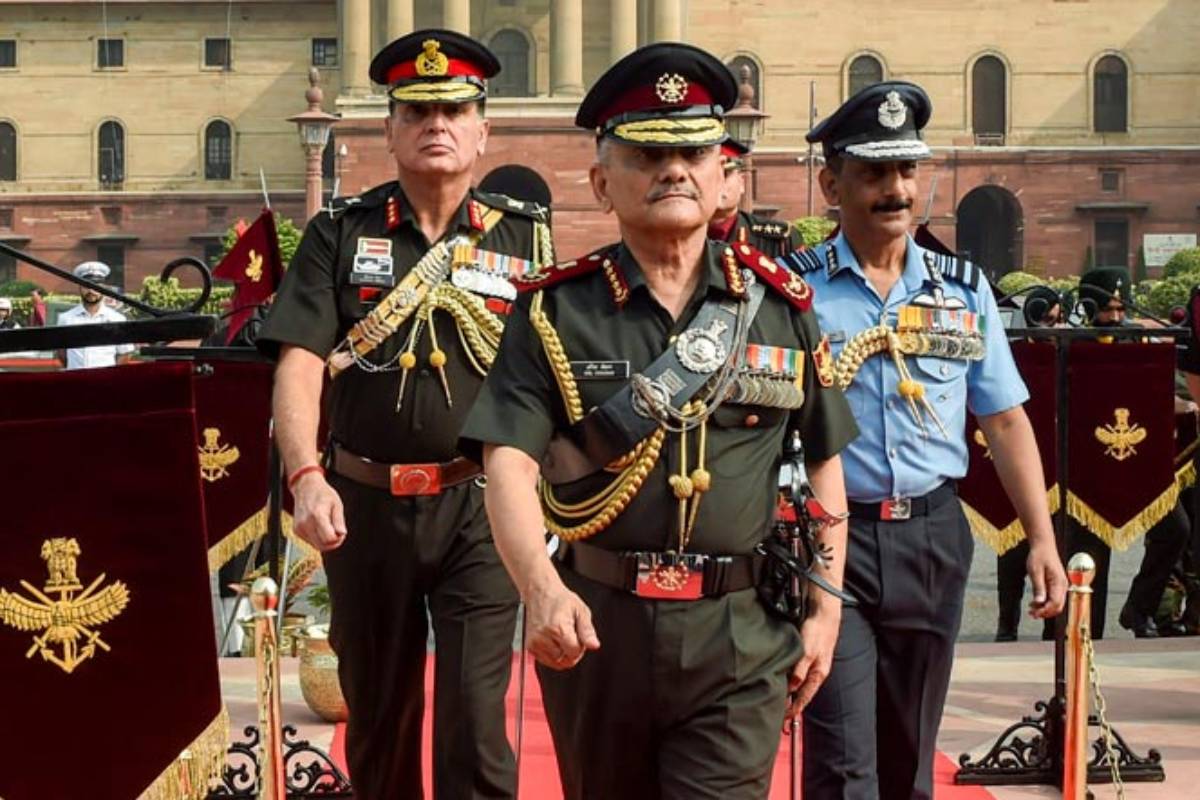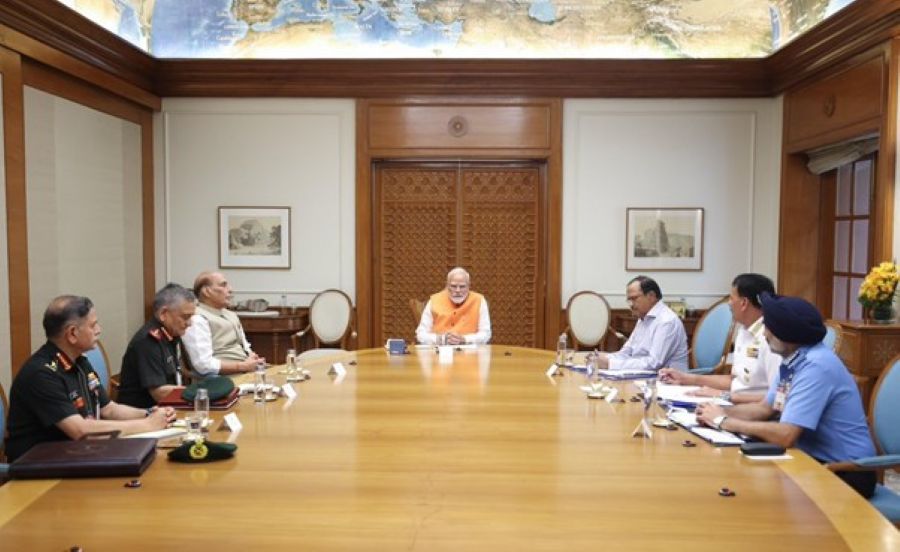The Modi government’s decision to extend the tenure of Chief of Defence Staff (CDS) General Anil Chauhan by eight months is not just an administrative call but a strategic necessity, dictated by the volatile security environment India faces. Far from being a routine extension, the move underlines the importance of continuity in military leadership at a time when the nation’s defence preparedness and strategic responses are being tested on multiple fronts.
India today operates in one of the most complex geopolitical neighbourhoods in the world. To the west, Pakistan remains unpredictable, both politically and militarily. Its establishment continues to flirt with instability, using cross-border terrorism as an instrument of policy. The rise of radical elements, coupled with Islamabad’s oscillation between Beijing and Washington, makes it a rogue player whose next move is difficult to anticipate. Reports of Pakistan re-aligning with the United States after years of dependency on China only adds to this uncertainty.
Further afield, the Taliban regime in Afghanistan continues to be a breeding ground for extremism, with spillover effects for South Asia. India cannot afford complacency when militant groups find sanctuary just across its borders. In this context, General Chauhan’s steady hand and his ability to integrate intelligence inputs with military strategy will prove crucial.
To the north, China remains the “suspicious neighbour” that has never abandoned its expansionist ambitions. The 2020 Galwan clashes were a grim reminder of Beijing’s intent to challenge Indian sovereignty. While diplomacy has managed to keep the channels of dialogue open, trust deficit remains high. A seasoned CDS ensures that military preparedness continues alongside diplomatic engagement.

Operation Sindoor, the ongoing effort to strengthen India’s military positioning in sensitive regions, requires long-term planning and consistency in leadership. Frequent changes at the top could disrupt momentum at a time when stability is essential. General Chauhan, a decorated veteran of counter-insurgency operations in Kashmir and the Northeast, has demonstrated composure under pressure and a talent for long-term strategic thinking. His extension guarantees that India’s evolving defence doctrine will not suffer from a leadership vacuum.
Equally significant is his role in steering theaterisation, one of the most ambitious defence reforms since Independence. Theaterisation refers to integrating the command structures of the Army, the Air Force, and the Navy to optimise decision-making and resource utilisation during wars and operations. It involves unifying the resources of all three branches under a single commander for seamless coordination, ensuring faster responses, and eliminating duplication of effort. Given the complexity of inter-service rivalries and logistical hurdles, this reform demands experienced leadership. General Chauhan’s extension allows him more time to pilot this transition and build consensus across the services.

Internationally, India must navigate a world order unsettled by reckless power politics. The ongoing Ukraine war has exposed deep fractures, with the West accusing India and China of indirectly funding Russia through energy purchases, despite the reality of global interdependence. Simultaneously, the United States, under the mercurial Donald Trump in his current avatar, has revived tariff wars, strained alliances, and sent mixed signals about its role in global conflicts.
For India, these contradictions mean one thing: it must rely on its own resilience. Strategic autonomy—a principle long cherished by Indian policymakers—demands strong, consistent military leadership. General Chauhan’s extension reflects that recognition.
Unlike previous dispensations where political interference often clipped the military’s wings, the Modi government has shown greater trust in professional judgment. The CDS, the three service chiefs, National Security Advisor Ajit Doval, Defence Minister Rajnath Singh, Home Minister Amit Shah, and External Affairs Minister S. Jaishankar form a compact but powerful decision-making circle. Within this framework, the armed forces enjoy unprecedented operational freedom, while political leaders focus on providing resources, diplomatic cover, and strategic clarity.
This synergy ensures that decisions—whether on surgical strikes, counter-terror operations, or border deployments—are timely, precise, and credible. General Chauhan’s presence in this setup is invaluable.
Critics might argue that the extension is a personal reward. That view underestimates the gravity of the present moment. India’s strategic environment—unpredictable Pakistan, aggressive China, volatile Afghanistan, and an unsettled global order—demands not experimentation, but seasoned continuity. By retaining General Chauhan, the government signals stability to both allies and adversaries.
The CDS’s extension is thus not about one man’s tenure but about safeguarding India’s long-term strategic interests. In a world where miscalculations can spiral into crises, steady leadership is India’s strongest shield.





